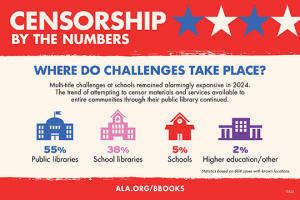When I was growing up, parents and teachers often warned that once something is posted on the Internet, it would stay there forever. As an adult, I better understand that this assumption that online or digital records are automatically preserved is complicated by the financial, legal, and technological logistics of digital storage and access.
For librarians and archivists, digital permanence is a part of our professional responsibilities. But we also have the responsibility to avoid any assumptions of our authority and objectivity over digital archiving and preservation. In Becerra-Licha’s article on post-custodial archives, she explains how we should interrogate how archives can leave communities and histories behind and turn it into an opportunity to create participatory, community-involved archives that also prioritize consent and privacy (2017). I have personal and professional interest in archival work, so I appreciated seeing how non-archivists can and should be involved in archival work.
However, I cannot talk about preserving documents without also acknowledging the ongoing issue of censorship and book challenges. Physical and digital media are still in danger from these censorship attempts. The discussion of this issue prompted many emotions and self-reflective moments for me. Watching the videos on the book challenges and reactions in Michigan and Texas, I found myself feeling discouraged, anxious, and furious to see both libraries/librarians and the queer community (of which I’m a part of) in the crosshairs of censorship and discourse over what is “child-appropriate.”
A part of my uncertainty and anxieties do stem from the fact that I do not currently work in a library and have not dealt with book challenges professionally. When I do start working in libraries, how will I respond? The majority of book challenges are happening in public libraries; should I lean towards public librarianship for my career because of these challenges? How would I support my professional peers if I’m in a different sector?

Graphic from the ALA, breaking down where book challenges take place
Thankfully, the increase in book challenges also means a strong, ongoing response from librarians and advocates. (In fact, this reflection is posted right after Banned Books Week 2025, so there are ample resources on how to advocate for our “freedom to read.”) Libraries are part of their communities, and this includes how we connect with local policymakers and can invite and guide communities to advocate with us. I’m heartened when I hear that in every story of a book challenge, there are groups of non-librarians showing up and advocating for us and the communities the books represent. In both archives and libraries, there is no better opportunity to invite people of diverse identities and communities to get involved. Digital and online platforms also provide many different ways to participate, from citizen archivist work to involving teens and young adults at the public library to posting your support on social media.

Header graphic for Banned Books Week 2025
Citations
ALA. (2025). Free Downloads | Banned Books. https://www.ala.org/bbooks/bannedbooksweek/ideasandresources/freedownloads
Becerra-Licha, S. (2017, October 23). Participatory and Post-Custodial Archives as Community Practice. EDUCAUSE Review. https://er.educause.edu/articles/2017/10/participatory-and-post-custodial-archives-as-community-practice
Center for International Scholarship in School Libraries. (2022). Banned Books Survival Guide. https://comminfo.libguides.com/BannedBookSurvivalGuide_548_FL22/Home
CNN. (2021, Decemeber 21). Librarians fight back against push to ban books from schools [Video]. YouTube. https://www.youtube.com/watch?v=M88WuMRNxoU
MLive. (2023, May 18). ‘Gender Queer’ and the culture war in Michigan’s libraries. [Video]. YouTube. https://www.youtube.com/watch?v=x043zuGWgMA
2 Comments
October 13, 2025 at 4:41 pm
I’ve also been reflecting on the subject of banned books week, and how this year feels a bit, well… different. I’m wondering where my place is in the fight for fair representation, and also saddened by the reality that *some* public, and school libraries will be challenged in disproportionate ways when it comes to censorship. The irony, and cruelty of these bans leave much to think about when it comes to personal boundaries, personal resilience, and how we adapt to this increasingly hostile political atmosphere. When I’m feeling glum about it, I look to those already leading the good fight, and if you don’t know her already, I recommend looking into award-winning librarian Amanda Jones , and EveryLibrary- a political advocacy group (links to discover them below). Chin up, Friend. There’s still good work to be done.
https://thelibrarianlinkover.com/2024/06/09/amanda-jones-award-winning-librarian-educator-and-author/
https://www.everylibrary.org/
October 14, 2025 at 8:27 pm
@mperalejo I am glad you covered this topic and I remember vividly the stuff happening in Michigan over the last few years, especially as a relates to the book Gender Queer. Even if you do not go into public library and ship, you can certainly be an advocate for making sure that everyone’s story is available in the library. Perhaps if you were an academic librarian, you might create a course or learning, artifact related to censorship, etc..